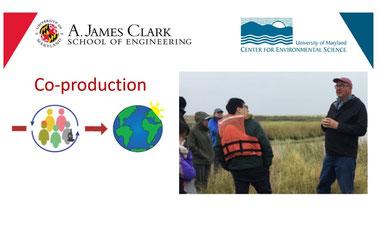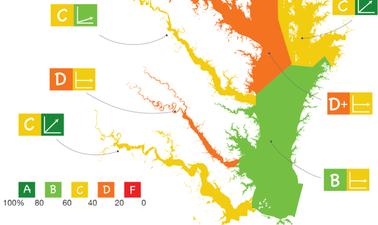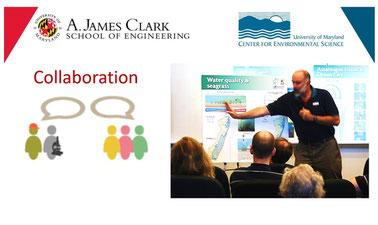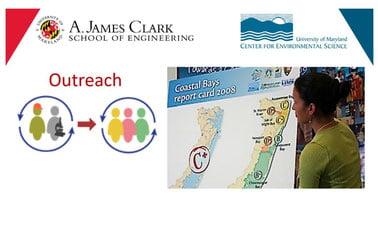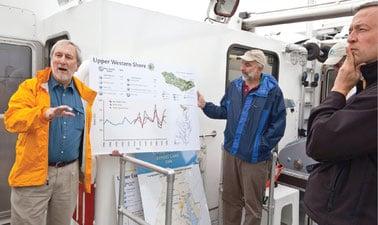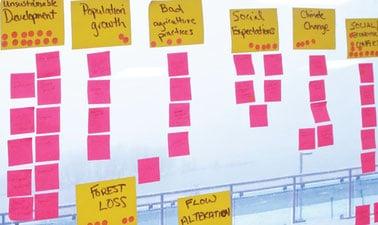William “Bill” Dennison
Dr. Bill Dennison is passionate about using science to solve, not just study, environmental problems. He has decades of experience working at the science and environmental management interface at local, national and international settings and is interested in sharing his experience through this course. Bill is the Vice President for Science Application at the University of Maryland Center for Environmental Science. He founded the Integration and Application Network, a collection of Science Integrators and Science Communicators who partner with groups around the world to engage with diverse stakeholders to co-produce effective science communication products and environmental report cards. Although he was trained as a natural scientist, Bill has been working with social scientists for the past decade to develop holistic solutions to environmental problems.
Bill has been intimately involved in the Chesapeake Bay Program, a large and complex effort to restore the largest and best studied estuary in North America. In addition, Bill helped create the Healthy Waterways initiative in Australia, as well as working closely with various Great Barrier Reef partners. He received his academic training at the University of Chicago (PhD, 1984) while researching seagrasses at the Marine Biological Laboratory in Woods Hole, Massachusetts. He also received degrees from the University of Alaska (MS, 1979) and Western Michigan University (BA, 1976). He has held positions in numerous science and management boards and panels, including the Science and Technical Advisory Committee for the Chesapeake Bay Program, and the International Riverfoundation.


